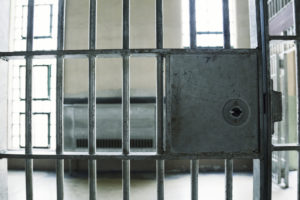Texas Commission on Jail Standards and Jail Deaths

Understanding the Texas Commission on Jail Standards and Its Role in Custodial Death Investigations
Introduction
For families who have lost loved ones in Texas jails, understanding the agencies responsible for oversight and accountability can be challenging. One of the most important regulatory bodies in this area is the Texas Commission on Jail Standards (TCJS). This article provides an in-depth look at TCJS, its role in custodial death investigations, and important information for families seeking answers and justice.
What is the Texas Commission on Jail Standards (TCJS)?
The Texas Commission on Jail Standards is a state agency responsible for establishing, implementing, and enforcing bare minimum standards for county jails and private correctional facilities in Texas. The commission oversees issues related to inmate safety, health, sanitation, and operational procedures in more than 240 facilities across the state. The TCJS does not address whether people in Texas jails are receiving care required by the Constitution, and its standards are just minimal. The TCJS also does not decide whether a jail detainee’s medical care is adequate.
Established in 1975, TCJS was created to provide consistent oversight and ensure that county jails comply with state and federal laws regarding the treatment and housing of incarcerated individuals. The commission conducts inspections, provides technical assistance, and enforces compliance measures to address any deficiencies in jail operations.
The Role of TCJS in Custodial Death Investigations
When a person dies in a Texas county jail, the loss is devastating for their family and community. The Texas Code of Criminal Procedure, Article 49.18, requires that each custodial death be reported and investigated thoroughly. Here’s how TCJS plays a role:
1. Ensuring Jail Compliance with Reporting Laws
Jails are legally required to report custodial deaths to TCJS within 24 hours of the incident. The agency monitors whether jails follow this requirement and ensures that the details of the incident are submitted to the Texas Attorney General’s Office and the U.S. Department of Justice, if necessary.
2. Conducting Jail Inspections Post-Death
Following a custodial death, TCJS often conducts inspections to evaluate whether the jail complied with state-mandated operational and health standards. The commission may examine:
- Jail logs and surveillance footage
- Inmate medical records and grievances
- Staffing levels and responses to medical emergencies
3. Issuing Notices of Non-Compliance
If the inspection uncovers violations of jail standards, TCJS can issue a notice of non-compliance, requiring the facility to address problems immediately. Non-compliance may involve failure to conduct regular inmate checks, inadequate medical care, or improper use of force.
4. Collaboration with Other Investigative Bodies
While TCJS oversees jail compliance, law enforcement agencies such as the Texas Rangers and local medical examiners conduct the official criminal and forensic investigations into custodial deaths. TCJS works with these agencies to ensure transparency and accountability.
How Families Can Use TCJS Resources
For families seeking justice after losing a loved one in jail, TCJS provides several avenues for assistance:
1. Requesting Custodial Death Reports
Families can request custodial death reports from TCJS and the Texas Attorney General’s Office. These reports include key details such as the cause of death, medical history, and any contributing factors identified in the investigation.
2. Filing Complaints Against Jails
If a family believes a jail failed to provide adequate care or violated standards, they can file a complaint with TCJS. Complaints can be submitted via:
- Phone: (512) 463-5505
- Email: tcjs@tcjs.state.tx.us
- Mail: Texas Commission on Jail Standards, P.O. Box 12985, Austin, TX 78711
3. Monitoring Non-Compliance Reports
TCJS publishes non-compliance reports online, which families can review to see whether a facility has a history of violations.
Challenges and Limitations of TCJS
While TCJS plays a crucial role in jail oversight, families should be aware of its limitations:
- TCJS does not conduct criminal investigations – These are handled by law enforcement.
- The agency cannot impose criminal penalties – It can issue administrative penalties, but criminal accountability requires action by prosecutors.
- Limited enforcement powers – TCJS can cite jails for non-compliance, but county governments control funding and implementation of reforms.
Additional Resources for Families
If you need further assistance after a custodial death, consider reaching out to:
- Private Jail Death Lawyers
- American Civil Liberties Union (ACLU) of Texas
- Texas Jail Project
Conclusion
The Texas Commission on Jail Standards plays an essential role in ensuring county jails comply with safety and operational laws. While it does not have the power to conduct criminal investigations, it serves as a crucial oversight agency to hold jails accountable when violations occur.
For families seeking justice, understanding TCJS’s role and how to access its resources is an important step. If you have lost a loved one in a Texas jail, you are not alone—there are organizations and legal avenues that can help you seek answers and accountability.
For more information, visit the Texas Commission on Jail Standards website at www.tcjs.state.tx.us or call (512) 463-5505. If you lost a loved one as a result of a jail death, also consider reaching out to our jail death law firm. You can reach us by phone or text, or by completing an online form.

